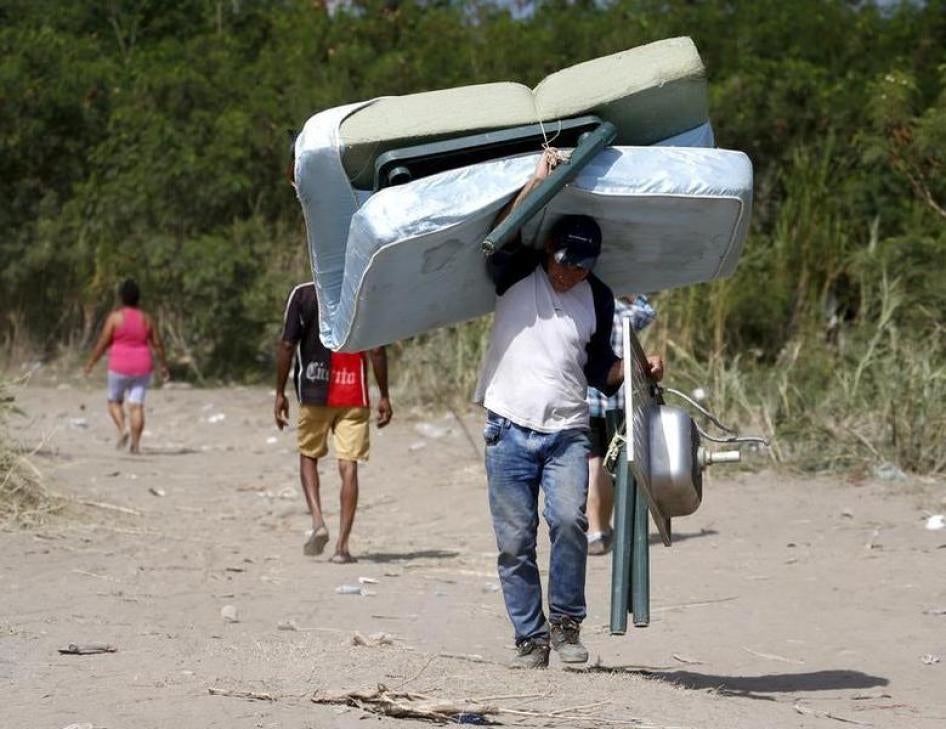The state of emergency President Nicolás Maduro declared days ago for the Venezuelan border area should have raised red flags internationally. But it didn’t, and credible allegations of human rights violations are on the rise.
The emergency decree restricts several rights, including the right to hold public meetings, and allows security agents to search homes, vehicles, and people without a judicial warrant. Although such restrictions in states of emergency are not prohibited by international law, the government must ensure that the restrictions are non-discriminatory and limited to what is necessary and proportionate, and that people always have access to an effective remedy to challenge alleged abuses.
This definitely does not seem to be the case for the more than 1,000 Colombians deported over the past week. An additional 4,000 have left the country fearing violations or deportation.
The well-respected Colombian Ombudsman Office has reported that it received 451 complaints of abuses suffered by Colombians in Venezuela, including forceful eviction from their homes, which were subsequently destroyed, and dozens of cases of verbal and physical abuse by Venezuelan security forces. In 177 cases, Colombian families were separated, in some cases leaving children behind in Venezuela. Other reliable sources Human Rights Watch interviewed corroborated this information, and told us that some deported Colombians had legal permits to live in Venezuela but weren’t allowed to challenge the deportation.
The emergency decree also states that the Venezuelan government will implement “Operation Peoples’ Liberation” in the border state of Táchira. The administration began the operation in July to address rising security concerns, as well as illegal sales of scarce products. The Venezuelan human rights group Provea has reported that in operations carried out since the initiative began, members of the National Guard and other security forces have violated fundamental rights, including through arbitrary detention, illegal home searches, and verbal and physical abuse.
There is no doubt that the Venezuelan government can take steps to protect its people, address its security and economic crises, and enforce its immigration laws. But given the Venezuelan security forces’ poor record, the impunity for human rights violations by security forces, and the lack of judicial independence in the country, scrutiny of the measures the Venezuelan government takes should be high.
Latin American governments and regional organizations such as Unasur and Mercosur should speak out and call for an end to mass deportations and for guarantees that the security operations do not trample on people’s fundamental rights.







